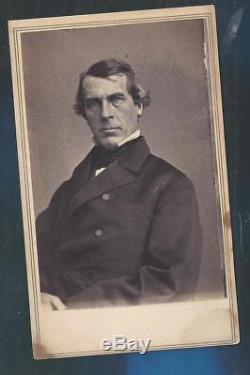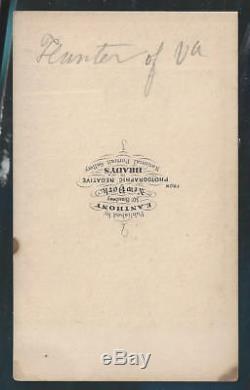
- Homepage
- Conflict
- Format
- Albumen (3)
- Ambrotype (32)
- Cabinet Card (67)
- Cdv (5)
- Crayon Portrait (2)
- Daguerreotype (27)
- Hardcover (14)
- Multi-formats (6)
- Negative Photo Image (4)
- Photograph (6)
- Ruby Ambrotype (3)
- Sixth Plate (2)
- Small (2)
- Stereoview (3)
- Tin Type (8)
- Tin Type Photo (2)
- Tintype (157)
- Tintype Photograph (6)
- Unknown (9)
- ... (6650)
- Photo Type
- Album (9)
- Albumen (14)
- Ambrotype (199)
- Cabinet Photo (67)
- Cdv (479)
- Cdv & Tintype (6)
- Cdvs & Tintypes (7)
- Daguerreotype (84)
- Gelatin Silver (13)
- Mixed (3)
- Negative (10)
- Negative Photo (4)
- Opalotype (4)
- Other (4)
- Photograph (4)
- Snapshot (3)
- Stereoview (23)
- Tintype (525)
- Tintypes (3)
- Unknown (12)
- ... (5535)
- Theme
- Americana (41)
- Americana, Fashion (18)
- Americana, Militaria (17)
- Antique (8)
- Art (7)
- Civil War (14)
- Conflicts & Wars (6)
- Fashion (19)
- History (43)
- History, Militaria (10)
- Love (6)
- Militaria (1033)
- Patriotic (7)
- People (21)
- Politics (14)
- Portrait (67)
- Portrait, Man (22)
- Stamps (22)
- Travel (6)
- Victorian (7)
- ... (5620)
- Type
- Belt Buckle (3)
- Carte De Visite (2)
- Cdv (3)
- Cdv Photograph (14)
- Daguerreotype (3)
- Full Cdv Photo Album (2)
- Illustrated Book (3)
- Negative Film Photo (4)
- Pendant (3)
- Photo Album (3)
- Photo Frame (2)
- Photograph (1350)
- Photograph Album (49)
- Picture Book (8)
- Picture Frames (8)
- Print (3)
- Real Photo (rppc) (10)
- Tintype (9)
- Tintype Photo (4)
- ... (5525)
- Unit Of Sale
Civil War CDV Robert M T Walker President of the Confederate Senate Virginia




Condition as seen, Robert Mercer Taliaferro Hunter (April 21, 1809 July 18, 1887) was a Virginia lawyer, politician and plantation owner. [1] He was a U.
Representative (18371843, 18451847), Speaker of the House (18391841), and U. During the American Civil War, Hunter became the Confederate States Secretary of State (18611862) and then a Confederate Senator (18621865) and critic of President Jefferson Davis. After the war, Hunter failed to win re-election to the U. Senate, but did serve as the Treasurer of Virginia (187480) before retiring to his farm.
Hunter was descended from the First Families of Virginia. [2] His mother's father, Henry Garnett was one of the county's largest landowners, [3] her brother James M. Congressman representing the area and her other brother Robert S.
Garnett would be within a decade. Hunter was two years old, and shortly after one of his slightly elder brothers, also William Hunter, died at age 5. Educated first by private tutors, R. Hunter entered the University of Virginia when he was seventeen, shortly after his father's death, and became one of its first graduates. [4] While a student, Hunter became a member of the Jefferson Literary and Debating Society, then studied law at the Winchester Law School.In July 1861, Confederate President Jefferson Davis appointed Hunter the Confederate States Secretary of State. He resigned on February 18, 1862, after his election as a Confederate Senator. Hunter served in the Confederate Senate in Richmond, Virginia until the war's end, and was at times President pro tem. As a Confederate Senator, Hunter became an often caustic critic of Confederate President Davis.
Despite this friction, Davis appointed Hunter as one of three commissioners sent to attempt peace negotiations in February 1865. Hunter met with President Abraham Lincoln and Secretary of State William H. Seward at the Hampton Roads Conference. However, after Lincoln refused to acknowledge the Confederacy's independence, Senator Hunter chaired a war meeting in Richmond where Confederates vowed they would never lay down their arms before achieving independence.
Following Lee's surrender, President Lincoln summoned Hunter to confer regarding Virginia's restoration to the Union. Many of Hunter's Garnett relatives became Confederate military officers, and his cousin Judge Muscoe Garnett (1808- 1880) commanded the Home Guard in Essex County.
Hunter's first cousins (through his mother) were career U. Army officers who became Confederate generals Robert S. Garnett, both of whom died in the conflict. Hunter enlisted as a private in Company F, 9th Virginia Cavalry, which was organized in December 1861 with Lt. Garnett among its officers, and which was initially assigned to protect the Rappahannock River as well as the Rappahannock river port cities of Falmouth and Fredericksburg.
Hunter served only months before being furloughed on account of sickness in July 1862, but did participate in raids under Gen. William Latane (who became a Confederate martyr as the only casualty of Stuart's vaunted ride around Union troops) and in General Lee's Seven Day offensive which ended the Union Peninsular Campaign. Was known as "Taliaferro Hunter" who enlisted in the Confederate infantry, Senator Hunter's other sons do not appear to have served in the military. When some suggested late in the war that their slaves could be armed and serve in the Confederate Army to win their freedom, Senator R.Hunter vehemently opposed the proposal with a long speech against it, but after teh Virginia legislature passed a resolution to the contrary, voted as instructed but with an emphatic protest In 1867, President Andrew Johnson pardoned Hunter for his activities supporting the Confederate States. He unsuccessfully ran to become U. Senator again in 1874, to succeed Unionist Republican John F. However, Confederate veteran (and war hero) Robert E.
Withers of the Conservative Party won. Hunter also published Origin of the Late War, about the causes of the Civil War. He died near Lloyds, Virginia in 1887, and was buried at the Garnett family burial ground in Lorettto in Essex County.The item "Civil War CDV Robert M T Walker President of the Confederate Senate Virginia" is in sale since Sunday, January 14, 2018. This item is in the category "Collectibles\Militaria\Civil War (1861-65)\Original Period Items\Photographs". The seller is "civil_war_photos" and is located in Midland, Michigan.
This item can be shipped worldwide.
